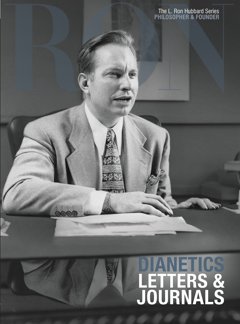Dianetics Things To Know Before You Buy
Wiki Article
Not known Incorrect Statements About Dianetics
Table of ContentsWhat Does Dianetics Mean?The Best Strategy To Use For Dianetics10 Easy Facts About Dianetics ShownThings about Dianetics
I couldn't ever not want to receive anything that comes to mind for you- if it was or else, I would not be resting right here with you, doing this. I not only can never ever have an issue, or otherwise intend to hear something that comes to mind for you, but I'm entirely anxious to understand every idea, every thought, every image or sensation that arises or manifests for you- don't ever assume otherwise, and if for one reason or another you do, please simply allow me understand! Occasionally, you might have a thought, and photo, idea or event turn up that does not seem to answer the question, or connect to it, however nevertheless, constantly do tell me about it, and as we proceed, the significance will emerge for you.This is intrinsic in the basis of processing, and the topic of this discussion: the basic roles of the therapist and the client: The standard function of the therapist is, in contrast to "common training", not to control, which suggests to impose and/or inhibit, yet to instead work from the basis of EMPOWERING THE CUSTOMER.

All About Dianetics
John Mcmasters expressed this fundamental truth splendidly well in one of his talks on Power handling, wherein he describes how he was asked what this "special flair" was that he had for giving such excellent sessions; he had to consider that for a moment, and detected that it was what he had not been doing, as well as what he was doing: he had not been reviewing, judging, computing, or in fact, producing any kind of ideas, let alone spoken expressions, after offering the command and while waiting for the PC to finish their solution to their satisfaction; he was, merely and just, existing with the PC, and completely interested.The function of the therapist, showed; that was his "unique knack". I have had my own experience which taught me this well, very beforehand in the game. In 1982, having recently finished my training and teaching fellowship on New Period Dianetics, I was running this on a COMPUTER, and there was a factor in the session where (being a little bit wet behind the ears not yet having numerous hours under my belt as a specialist auditor) the computer appeared to be "taking as well long" to express anything vocally after I gave him a command.
This key ended up being one of the most useful contribution that John ever made to the subject of treatment or bookkeeping (Dianetics). In my simple opinion, it is the best payment that any person has actually ever made to these subjectsthe application is totally non-judgemental, non-evaluative, and without any recommendation, advice or opinion.no preconceived agenda for people, or 'levels' that they have to do
In Scientology we prided ourselves on not reviewing for people. All that really suggested was that the auditor did not VERBALLY evaluate for the Computer in session.
The smart Trick of Dianetics That Nobody is Discussing

Any person who had actually ever seen John audit can not aid however see a special quality in his bookkeeping."The customer's basic function is to be there with the purpose you can look here of relocating the instructions of their spiritual goals, and to openly and completely share and experience whatever manifests for them in addressing the questions and implementing the instructions in the processing.
This is something to procedure as needed. Likewise, individuals frequently have prior experience and/or indoctrination in auditing/processing which, in some methods, and to some degrees, really misinforms them right into attitudes, concepts and actions patterns that avoid the complete realization of these duties, and so they will certainly click site tend to inhibit the expressing of what comes to mind, as in the examples given over - Dianetics. * The initial, and probably leading examples of mis-indoctrination causing much less than entirely smooth and reliable sessions, can be located in particular aspects of the training regimens, or "TR's":"TR's" are often a person's first, or at the very least early, experience in Scientology, and while I will take place to explain what I see as the flaws in concept and practice, nonetheless, often tend to be greatly therapeutic, done as they are offered (Hubbard urges that "TR's are not processing, they are training", but factually, they are both processing AND training)
Alan Walter made similar monitorings, and improved these with his "Visibility Processes". There is no "flunking", and no denial of the fact of this being handling. The focus, as it should be, gets on experiencing the various other individual's existence. All the manifestations which obtain a "fail" in doing "TR-0" are just the being's efforts to stand up to the other home person's presence, and instead of being bugged and pestered with "Flunk", which enforces "failing!" on the being, one simply needs to be urged to "stick their feet in the water a little much deeper", to progressively rehabilitate their capacity and readiness to completely share and experience "being here", or "visibility", with others.
The 3-Minute Rule for Dianetics

Report this wiki page